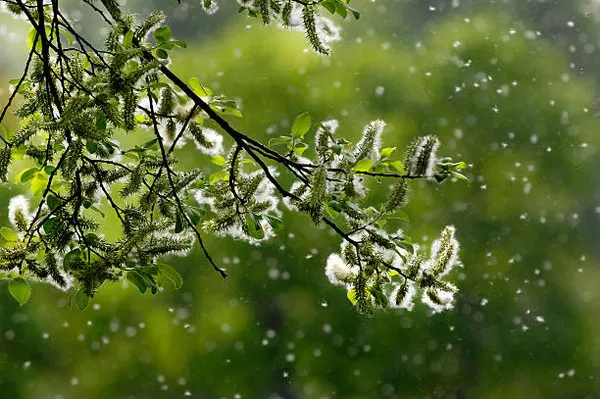As the seasons change and trees begin to bloom, many individuals find themselves battling the uncomfortable symptoms of tree pollen allergies. From sneezing and itching to congestion and fatigue, allergies to tree pollen can significantly impact daily life and overall well-being. Fortunately, with the right approach to treatment and management, it’s possible to alleviate symptoms and enjoy the beauty of spring without the constant sniffles. In this article, we’ll explore effective strategies for treating allergies to tree pollen, offering guidance and relief for those affected by seasonal allergies.
Understanding Tree Pollen Allergies: The Culprit Behind the Sniffles
Before diving into treatment options, it’s essential to understand the nature of tree pollen allergies and how they manifest. Tree pollen allergies, also known as hay fever or seasonal allergic rhinitis, occur when the immune system overreacts to pollen from trees, triggering allergic symptoms. Common tree species that produce allergenic pollen include oak, birch, cedar, maple, and elm.
When individuals with tree pollen allergies come into contact with airborne pollen particles, their immune system mistakenly identifies the pollen as a threat and releases chemicals such as histamine to combat it. This immune response leads to the classic symptoms of allergies, including sneezing, nasal congestion, runny nose, itchy eyes, throat irritation, and fatigue.
Effective Strategies for Treating Tree Pollen Allergies
Identify Allergy Triggers:
The first step in managing tree pollen allergies is to identify specific triggers and sources of pollen that exacerbate symptoms. Keep track of pollen counts in your area, pay attention to seasonal changes, and be mindful of exposure to known allergens such as certain tree species. Avoid spending extended periods outdoors during peak pollen times, such as windy days or early mornings when pollen levels are high.
Use Allergy Medications:
Over-the-counter (OTC) and prescription allergy medications can provide relief from allergy symptoms by suppressing the immune response and alleviating discomfort. Antihistamines such as loratadine, cetirizine, and fexofenadine can help reduce sneezing, itching, and runny nose. Nasal corticosteroids such as fluticasone and budesonide can decrease nasal inflammation and congestion. Decongestants such as pseudoephedrine and phenylephrine can relieve nasal congestion, but they should be used cautiously and for short periods due to the risk of rebound congestion.
Try Allergy Immunotherapy:
Allergy immunotherapy, also known as allergy shots or sublingual immunotherapy (SLIT), involves exposing individuals to small doses of allergens over time to desensitize the immune system and reduce allergic reactions. Allergy shots are administered by a healthcare professional and can be effective for individuals with severe allergies that are not adequately controlled by medication. SLIT involves placing allergen extracts under the tongue and is a convenient alternative for some patients.
Use Nasal Irrigation:
Nasal irrigation, also known as nasal saline irrigation or nasal lavage, involves flushing the nasal passages with a saline solution to remove allergens, mucus, and irritants. This technique can help relieve nasal congestion, reduce inflammation, and improve nasal airflow. Nasal irrigation can be performed using a squeeze bottle, neti pot, or nasal irrigation system available over the counter at pharmacies.
Consider Allergy-Proofing Your Home:
Take steps to minimize indoor exposure to tree pollen by allergy-proofing your home environment. Keep windows and doors closed during peak pollen times, use air purifiers with HEPA filters to remove airborne allergens, and regularly clean and vacuum indoor surfaces to reduce pollen accumulation. Consider using allergen-proof mattress and pillow covers to protect against dust mites and other allergens.
Manage Symptoms Holistically:
In addition to medication and medical treatments, consider incorporating holistic approaches to managing allergy symptoms. Practices such as acupuncture, yoga, meditation, and herbal supplements may help alleviate stress, boost the immune system, and reduce inflammation. Consult with a healthcare professional before trying alternative therapies to ensure safety and effectiveness.
Consulting a Healthcare Professional
If you’re experiencing severe or persistent allergy symptoms despite using over-the-counter treatments, it’s essential to consult with a healthcare professional for a comprehensive evaluation and personalized treatment plan. A healthcare provider, such as an allergist or immunologist, can conduct allergy testing to identify specific allergens, assess the severity of your allergies, and recommend appropriate treatment options based on your individual needs and preferences.
Conclusion
Living with tree pollen allergies can be challenging, but with proactive management and effective treatment strategies, it’s possible to minimize symptoms and enjoy a better quality of life during allergy season. By identifying allergy triggers, using allergy medications, considering allergy immunotherapy, practicing nasal irrigation, allergy-proofing your home, and exploring holistic approaches to symptom management, you can take control of your allergies and experience relief from seasonal sniffles.
Remember, managing allergies is a journey, and it may require trial and error to find the treatments that work best for you. Be patient, stay informed, and don’t hesitate to seek guidance from healthcare professionals for personalized support and guidance. With the right approach, you can conquer tree pollen allergies and embrace the joys of spring with clarity and comfort.
[inline_related_posts title=”You Might Be Interested In” title_align=”left” style=”list” number=”6″ align=”none” ids=”7637,7634,7631″ by=”categories” orderby=”rand” order=”DESC” hide_thumb=”no” thumb_right=”no” views=”no” date=”yes” grid_columns=”2″ post_type=”” tax=””]
































